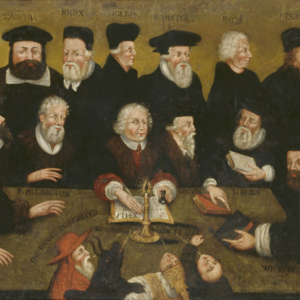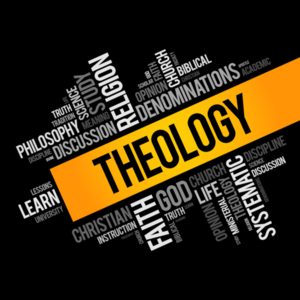
Description
Are you a student in theology, religious studies, history, philosophy, or other humanities disciplines looking to refine your writing skills? This lesson is designed to equip you with the essential tools and strategies for producing clear, compelling, and academically rigorous written work. Drawing on principles of effective scholarly communication, we will help you articulate complex ideas with precision and confidence.
This isn't just about grammar; it's about mastering the art of theological and subject-specific expression, from structuring arguments to engaging with sources ethically and effectively.
What You'll Learn & Practice:
We'll tailor our sessions to your specific needs and the type of writing you're undertaking, but common areas of focus include:
-
Understanding Academic Conventions:
-
The purpose and audience of academic writing in theology and humanities.
-
Key characteristics of scholarly prose (clarity, precision, objectivity, nuance).
-
Navigating different citation styles (e.g., Chicago/Turabian, MLA, APA) relevant to your field.
-
-
Developing Strong Arguments:
-
Formulating a Clear Thesis Statement: Crafting a concise and arguable main point.
-
Structuring Arguments: Organizing your ideas logically and persuasively (e.g., introductions, body paragraphs, conclusions).
-
Developing Evidence: Effectively integrating primary and secondary sources to support your claims.
-
Counter-Arguments & Nuance: Addressing opposing viewpoints and demonstrating sophisticated understanding.
-
-
Engaging with Sources:
-
Effective Research Strategies: Finding credible and relevant scholarly materials.
-
Summarizing, Paraphrasing, and Quoting: Using sources appropriately and avoiding plagiarism.
-
Critical Analysis of Sources: Evaluating the strengths and weaknesses of scholarly works.
-
Synthesizing Information: Weaving together insights from multiple sources to form a coherent argument.
-
-
Refining Style and Clarity:
-
Grammar, Punctuation, and Syntax: Polishing your writing for accuracy and readability.
-
Vocabulary & Diction: Using precise and appropriate academic language.
-
Achieving Cohesion & Coherence: Ensuring smooth transitions between sentences and paragraphs.
-
Developing a Strong Academic Voice: Expressing your ideas with authority and clarity.
-
-
Specific Writing Forms:
-
Essay Writing: From short analytical essays to longer research papers.
-
Theological Reflections: Articulating personal and corporate theological insights.
-
Book Reviews & Article Critiques: Analyzing and evaluating scholarly publications.
-
Dissertation/Thesis Support: Guidance on structure, argument, and research methodology for longer projects.
-
How the Lesson Works:
Our sessions are highly interactive and practical, focusing on direct application to your writing:
-
Reviewing Your Work: You can bring existing drafts, outlines, or specific writing challenges, and we'll work through them together.
-
Targeted Exercises: We'll engage in exercises designed to strengthen specific writing skills.
-
Brainstorming & Outlining: We can develop ideas and structures for new writing projects.
-
Constructive Feedback: You'll receive detailed, personalized feedback on your writing, focusing on areas for improvement in argument, structure, clarity, grammar, and style.
-
Discussion & Q&A: This is a dedicated space to address your questions about academic writing conventions and best practices.
-
Resource Sharing: I can recommend writing guides, style manuals, and academic resources to support your ongoing development.
Who is this lesson for?
This lesson is ideal for:
-
Undergraduate and postgraduate students in theology, religious studies, history, philosophy, or other humanities fields.
-
Scholars, pastors, or researchers seeking to improve their academic writing for publications, papers, or presentations.
-
Anyone who wants to develop the skills to communicate complex ideas effectively and persuasively in a scholarly context.
Master the art of scholarly communication and elevate your academic writing! Book a free trial lesson to discuss your writing goals and how we can achieve them together.
Cafetalk's cancellation policy - Before request is confirmed (fixed) Cancellation possible at any time without charge. After request is confirmed (fixed) More than 24 hours before lesson start time.→ Cancellation is possible at any time. Less than 24 hours before lesson start time.→ The tutor may take a cancellation fee. No-Show→ The tutor may take a cancellation fee. (Please check with the tutor for details.)
Cafetalk's cancellation policy
Before request is confirmed (fixed)
- Cancellation possible at any time without charge.
After request is confirmed (fixed)
- More than 24 hours before lesson start time.→ Cancellation is possible at any time.
- Less than 24 hours before lesson start time.→ The tutor may take a cancellation fee.
-
No-Show→ The tutor may take a cancellation fee.
(Please check with the tutor for details.)
Lessons by this tutor
-
-


Reformation-Era Church History
Explore Reformation History and Its Key Figures60min 4,500PHas Trial -


Medieval Church History
Explore the Interesting History of the Medieval Church60min 4,500PHas Trial -


Custom Church History Session
Tailored Lesson on Chosen Area/Topic in Church History60min 4,500PHas Trial -
-


English Reading and Writing Practice
Focused Help with English Reading and Writing Skills30min 2,000PHas Trial -


English In Context - For Travel or Work
Contextual, Everyday, Professional English Session by a British Native Speaker30min 2,000PHas Trial -


Conversational English Practice
Engaging Conversation Practice with a Native Speaker30min 2,000PHas Trial






